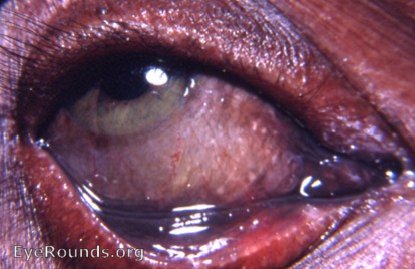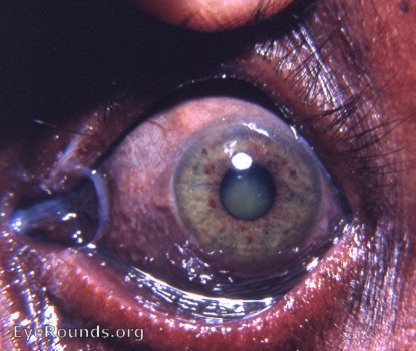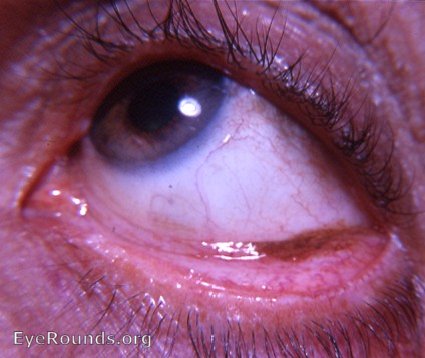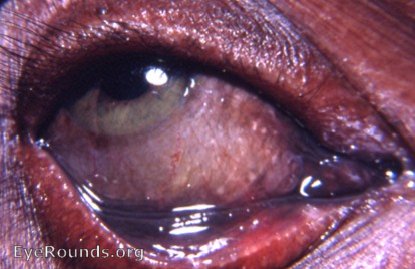EyeRounds Online Atlas of Ophthalmology
Contributor: William Charles Caccamise, Sr, MD, Retired Clinical Assistant Professor of Ophthalmology, University of Rochester School of Medicine and Dentistry
*Dr. Caccamise has very generously shared his images of patients taken while operating during the "eye season" in rural India as well as those from his private practice during the 1960's and 1970's. Many of his images are significant for their historical perspective and for techniques and conditions seen in settings in undeveloped areas.
Category: External Disease
Argyrosis

Reference: Yanoff and Fine, Ocular Pathology, p. 246, 1975: " Chronic use of silver-containing medications may result in a slate gray discoloration of the mucous membranes including the conjunctiva, and of the skin, including the lids." The photo shows the iris to be much lighter than in the usual Indian. However, there are some Indians especially from the Punjab (around Delhi) who have lighter irides. This is attributed by some to an influence by Alexander the Great's soldiers when they swept into that part of India. As a medical student, Dr. Caccamise saw a male caucasian patient with generalized argyrosis as a result of his having worked for years at Eastman Kodak - at that time the possessor of the greatest store of silver.
Argyrosis OS

Bilateral argyrosis of the conjunctiva.
Argyrosis/Argyria - a second case

Silver preparations for the eye were in widespread use until the advent of the sulfas (late 1930s) and then penicillin (mid 1940s for public use). If the treatment of the conjunctiva with a silver solution continued for several months or a year, the discoloration seen in the photos could be produced. This remained a permanent discoloration.

an extreme case of argyrosis/argyria - from the Greek for silver

Ophthalmic Atlas Images by EyeRounds.org, The University of Iowa are licensed under a Creative Commons Attribution-NonCommercial-NoDerivs 3.0 Unported License.


